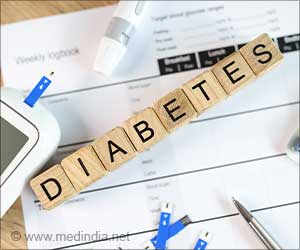Neonatal diabetes, when detected at an early age (before 6 months) will help in controlling the blood sugar levels more effectively.
Dr Ewan Pearson, of Dundee University's Medical School and his team has carried out research on a specific genetic type of diabetes.
Neonatal diabetes occurs only in one in a million births. “About 1,500 to 2,000 Americans with neonatal diabetes rely on daily insulin injections to survive” says Dr. Pearson. According to him neonatal diabetes, when detected at an early age (before 6 months) will help in controlling the blood sugar levels more effectively.Tablets instead of regular insulin injections can achieve this control. As an outcome of Dr. Pearson’s research, more than 80 patients have switched over to tablets from insulin injections.
He specified that this treatment is effective for those who have mutation in kir6.2 gene, which has been detected in the first few months after birth. Early diagnosis has helped around 90% of the patients to control their blood sugar levels with the sulfonylurea tablets alone. Sulfonylurea drug is generally used to enhance insulin production in type II diabetes that occurs in adults.
Dr Pearson said: "The striking finding was not just that patients could stop insulin but, in every case, the overall blood sugar was lower without patients having problems with too-low blood sugar. It is rare to find such an excellent response to treatment."
His team says that Genetics has played a major role in finding the cause and treatment of this type of diabetes. Two years back, researchers found that it was a genetic mutation responsible for half of the neonatal diabetic cases, which prevented insulin production in the body.
The age-old treatment, of tablets for the adults, was tried on these young patients. The results showed that these patients could produce insulin in their body just like their normal counterparts. These tablets helped them to overcome the damage caused by mutation.
Advertisement
This report and another related one, explaining the cause of 12% of the neonatal diabetic cases, is cited in today’s New England Journal of Medicine.











